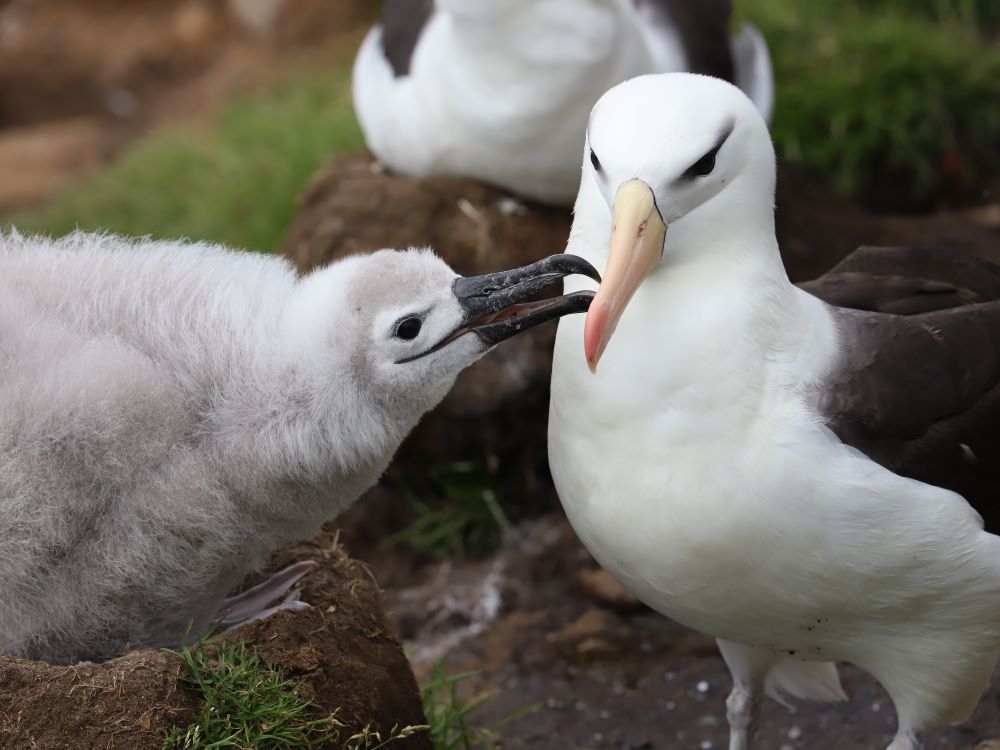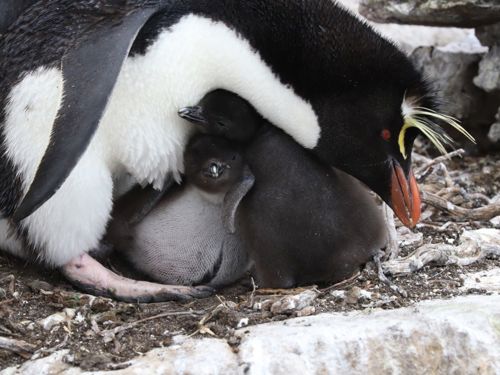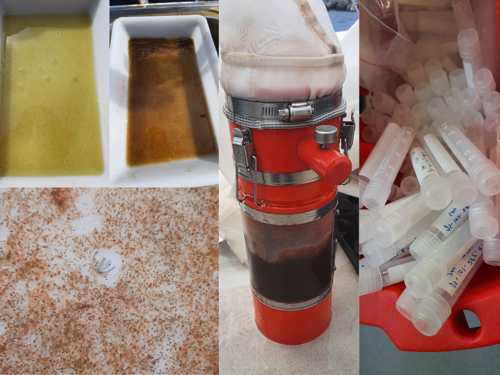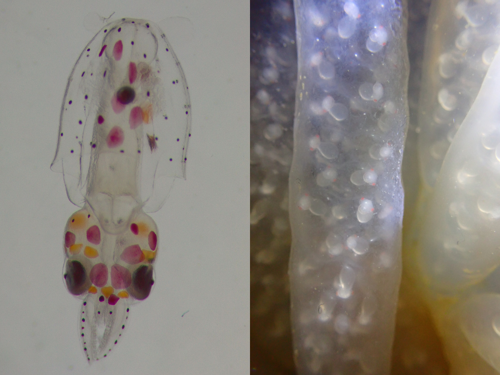Climate change resilience

The Falkland Islands host globally significant breeding populations of seabirds, such as the black-browed albatross. Credit - Dr Jesse van der Grient.
Climate change resilience in Falkland Islands fisheries and marine ecosystems
The Falkland Islands harbour a unique mixture of temperate and subantarctic marine biodiversity, with large populations of charismatic animals such as black-browed albatrosses (Thalassarche melanophris), southern rockhopper penguins (Eudyptes c. chrysocome), and South American fur seals (Arctocephalus australis). Many species, including fishes (e.g., Hoki (Macruronus magellanicus), southern blue whiting (Micromesistius australis)) and squid, migrate vast distances, ranging from Chile and Brazil to the Falkland Islands, for feeding and breeding. Several species, such as the squid, rock cod, and southern blue whiting, are also important for the Falklands fisheries. The Patagonian squid (Doryteuthis gahi) together with the Argentine squid (Illex argentinus) represent most of the Falklands fisheries landings providing significant contributions to the Falkland economy. There is a good chance that when squid is eaten in Europe, it was caught in the Falkland waters. Climate change threatens the Falklands marine ecosystem and poses a risk to the Falklands fisheries and its economy.

Funded by the UK Government through Darwin Plus, the South Atlantic Environmental Research Institute (SAERI) has made significant contributions to the knowledge of the Falkland Islands’ marine ecosystem response to climate change, combining observations, experiments, and modelling to provide policy advice for an ecosystem-based approach to fisheries management and climate change adaptation.
One major area of work has been focused on the coastal or inshore environment.
The Falklands coastal environment includes one of the most pristine kelp forests in the world. Many species, such as the Patagonian squid and rock cod, use the kelp forests as a spawning and nursery ground, while adults tend to stay offshore. However, animal communities, especially zooplankton, are poorly understood. Our project therefore conducts regular zooplankton surveys to obtain important baseline information for this group of organisms. We analyse the spatial and seasonal variation in the zooplankton community composition. We also identify fish larvae, to further our understanding of the inshore-offshore connection in fishes during their different life stages. Further, we have set up physiological warming experiments to understand changes in energy requirements for squid egg masses, and survival rates for kelp-associated invertebrates. Squid development is known to be influenced by warming, and by understanding changes in the energy requirement and squid paralarvae traits in response to warming, we are taking the first steps to understanding the potential consequences of ocean warming for this important species in the Falklands. Animals are known to respond differently to warming, and by investigating representative species from the kelp forest animal community, we can understand how this community may potentially change in response to heat waves or long-term environmental change.

A second major area of work has been focused on the Falkland Islands’ offshore areas.
Our project has collated baseline information on marine species’ trophic and migration patterns in the Falkland Islands waters. This has informed the creation of an ecosystem model, where we recreate the Falklands food web to understand ecosystem structure, major energy flow pathways, and effects of environmental change. This can be combined with fisheries information to understand potential industry effects for the future. Such a model or tool is a useful platform for discussions and will be used later this year to discuss climate change adaptation with local fisheries and government. Our project will further collaborate with stakeholders to work towards an ecosystem-based approach to fisheries management, which is also supported by the work we do.

In all, this project supports localised efforts to secure food sustainability in a changing environment. Our work would not have been possible without the collaborations we have with both industry (Falkland Islands Fishing Companies Association), government (Falkland Islands Government Fisheries Department), and other partners (Shallow Marine Surveys Group, British Antarctic Survey, Oregon State University).
Written by Jesse van der Grient. For more information on this Darwin Plus Main project DPLUS148, led by SAERI, please click here.

 Back
Back